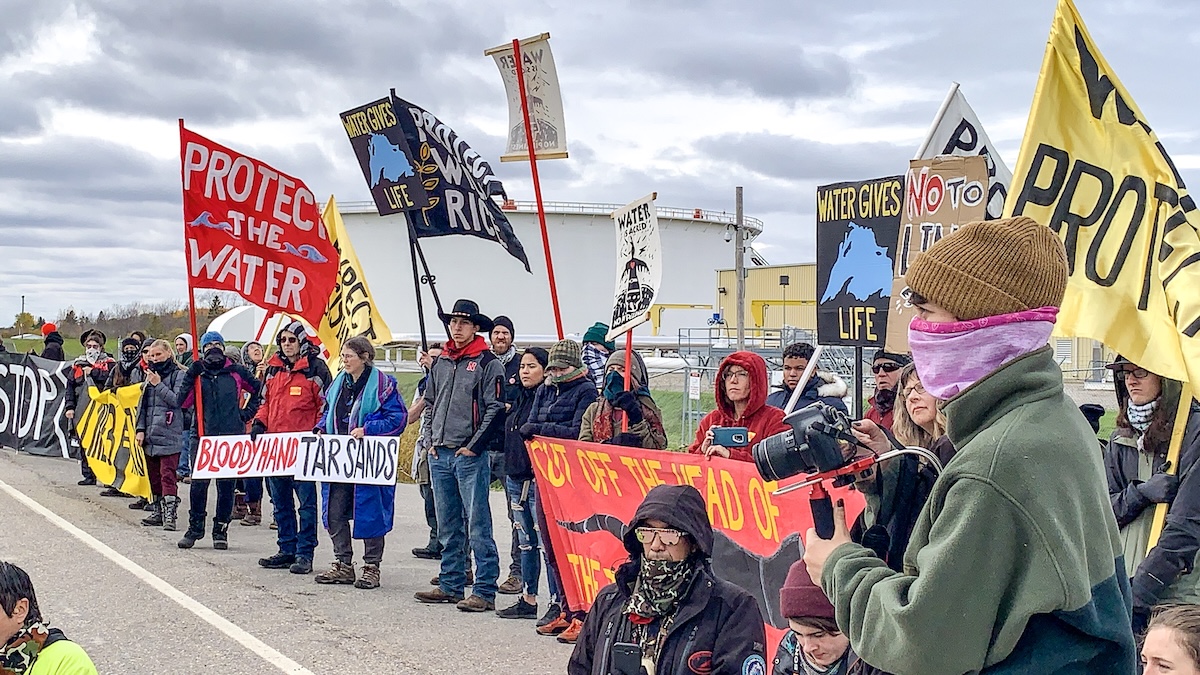List of Honorees (click to read biographies)
- Asha Deliverance – Keynote speaker and Peacemaker Honoree
- Honoring Three Heroes
- Taliesan Namkai-Meche
- Ricky John Best
- Micah Fletcher
- Dot Fisher-Smith, environmental and peace activist
- Dr. Herbert Rothschild, community organizer and long-time advocate of civil rights and nuclear disarmament
- Racial Equity Coalition, addressing racial bias through communication and community action
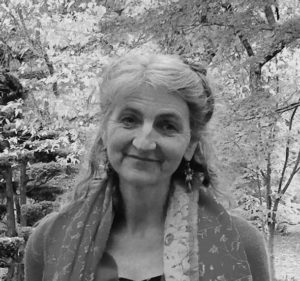
For all Humanity
We stand for unity and love.
We stand for peace and tranquility.
We stand for truth, equality and justice.
We stand for life, liberty and happiness.
We stand for the welfare and protection of all
–from the “We Choose Love” website
In her life, Asha Deliverance has been a visionary and pioneer of the future in a variety of sectors, as a midwife, as a businesswoman and as a peace activist. With the death of her son Taliesin Namkai-Meche due to a white supremacist hate crime, she is founding “We Choose Love”: an organization to promote cross-cultural and inter-faith communication in the interest of world peace. This is her response to tremendous personal loss as a symptom of the troubling tears in our social fabric. Earlier in her life, Asha co-founded the UCSC Biodynamic Farm Project in Santa Cruz in the early 70s, and served as a midwife; also training midwives, for 20 years. She has had three businesses: growing alfalfa sprouts on a large scale, running her midwifery school, and founding Pacific Domes.
One of her passions is bridging science and consciousness. She hosted a forum for 15 years giving visibility to thought leaders in every related field. She is also involved in the festival culture, and providing Festival Domes and teaching workshops for 25 years.
Asha constructed countless domes while working as a midwife over a fifteen-year peri. . In 1980, the demand for domes led Asha to found Pacific Domes, where she continues to educate and surround herself with cutting edge ideas and thinkers in collaboration toward a more sustainable future filled with creative alternatives in technology, shelter and design. With a global outreach, Pacific Domes takes disaster preparedness seriously, leading the way forward with expertise in organizing donated dome shelters to various relief efforts, with over thirty-five years of industry expertise in organizing donated and rapidly deployable dome shelters to various relief efforts.
Pacific Domes’ most recent hurricane relief and humanitarian efforts have been during the 2016 Hurricanes that hit the Southern part of the United States, Haiti and Mexico.
Asha’s life has been one of service, committed to honoring unity and peace through her own spiritual practices as well as activism. Asha has seven grandchildren and seven children, including Taliesin, who recently passed away, sacrificing his life for the benefit of humanity.
~~~~~~~~~~~~~~~~~~~~~~~~~~~~~~~~~
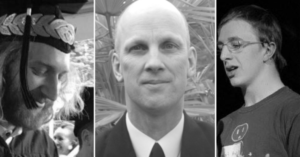
On May 27th of this year, Ricky John Best, 53, of Happy Valley, of Southeast Portland, Taliesin Namkai-Meche and Micah David-Cole Fletcher, 21, of Southeast Portland, intervened when a man known to police and others for his hate speech and extremist views, launched a slur-filled diatribe at the girl wearing a hijab and her friend after he boarded the MAX Green Line at Lloyd Center, in Portland. The assailant is now in jail and facing a strong sentence.
Ricky John Best, 53, and Taliesin Myrddin Namkai-Meche, 23, died from their injuries and Micah Fletcher, 21, survived with serious injuries but is recovering.
Ricky John Best worked as a technician for Portland’s Bureau of Development Services. He is survived by his wife, Myhanh Best, three teenage sons and a 12-year-old daughter. Best was a 23-year Army veteran and member of from Christ the King Church. He retired from the United States Army as a platoon sergeant for Corps maintenance in 2012, after 23 years in the military.
Ricky John Best was buried with military honors at Willamette National Cemetery, where Governor Kate Brown presented the family with the Oregon flag at his burial.
Archbishop Alexander K. Sample described the actions of those who stood up on that train as “an amazing demonstration of human love and dignity and respect for another.
It is said that when he gave money to the homeless in need, his family would be concerned that he was being tricked. He responded: “I would rather be tricked than to miss the opportunity to help somebody.”
Taliesin Namkai-Meche, who also died in the attack, had recently graduated from Reed College with a degree in economics. He worked for the Cadmus Group, and had recently bought a home in Portland. He had the heart of a poet and is remembered by childhood friends as smart, empathetic and courageous and selfless. He had a love of people, nature, poetry and music. There was a gathering of 2,000 or more people at Reed College to honor Taliesin after his death. There have also been several gatherings to honor Taliesin in Ashland, to express our city’s sorrow and to reflect on his generous spirit while supporting his family. He is survived by his mother Asha Deliverance, his father Papa John, six brothers and sisters and a large family of relatives. His mother, Asha Deliverance said:
“Taliesin Myrddin lived a joyous and full life. His enthusiasm was infectious. We lost him in a senseless act that brought close to home the insidious rift of prejudice and intolerance that is too familiar, too common. He was resolute in his conduct (and) respect of all people. In his final act of bravery, he held true to what he believed is the way forward. He will live in our hearts forever as the just, brave, loving, hilarious and beautiful soul he was. We ask that in honor of his memory, we use this tragedy as an opportunity for reflection and change. We choose love. Safe journey Taliesin. We love you.”
Micah Fletcher is the young man who survived the brutal knife attack aboard the MAX train. In an interview with a Portland news station after his release from the hospital, where he had been recovering from a knife cut that almost killed him, Micah said:
“We must stand hand-in-hand with one another and find a way to start ending the anger and the hatred and to not allow anger and hatred to flood our city streets with violence and with the destruction that can come with it. I want the families of those young men to know that their children were heroes and that they will always be loved in the eyes of this city the young women who had the unfortunate position of being traumatized to know that none of this was in any way their fault…that the world is just a very cruel place sometimes.”
He also said he is not a hero, instead deflecting that praise to Best and Namkai-Meche. Fletcher, is a Portland State University music student
“It was the right thing to do,” Fletcher said Tuesday. “I’m not a hero, nobody special. I’m a kid from Portland. … they will always be heroes in the eyes of this city.”
Fletcher is a poet, passionate about social injustice. One of his poems, which rails against the prejudices faced by Muslims, won a 2013 poetry slam. He recently won an open seat on a Portland neighborhood association, imploring a packed crowd to overcome divisions and work toward protecting the area’s most vulnerable residents.
~~~~~~~~~~~~~~~~~~~~~~~~~~~~~~~~
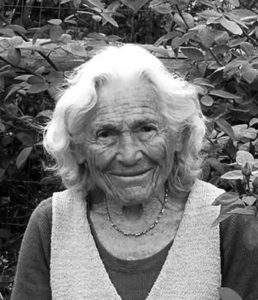 Peacemaker Dot Fisher-Smith was a co-founder of Peace House in 1982. The philosophy and practice of nonviolence have informed her entire life and her connections with the many people whose lives she has touched.
Peacemaker Dot Fisher-Smith was a co-founder of Peace House in 1982. The philosophy and practice of nonviolence have informed her entire life and her connections with the many people whose lives she has touched.
Born on June 26, 1928 in Memphis Tennessee, Dot spent her childhood growing up in the deep south during segregation. With absent parents and nurturing black maids, she saw the injustice all around her and vowed that she would “never be like them” when she grew up. She practiced defiance by sitting in the back of the bus with the colored people as a sign of solidarity.
As a young adult, she escaped the south, going to work in New York City and spend time in the New England countryside. She discovered the beauty and wonder of nature that had been absent from her childhood experiences. Her deep connection to nature led her to bicycling around Europe, solo hiking the High Sierras and trekking the Himalayas. It influenced her art work, her spiritual journey and her activism.
Later, while living in San Francisco, Dot had a social and political awakening in 1967. It was the Vietnam War era. She felt called to join her then husband to work with the Gandhian War Resisters League (WRL): a group demonstrating peacefully against the draft. Blocking the entrance of the Oakland Induction Center, she was arrested for the first time and jailed for ten days with Joan Baez and hundreds of others. This would be the first of many arrests for her nonviolent activism over the course of her life.
Dot moved to Wolf Creek, Oregon in 1970 with her son and daughter “to leave the establishment behind” and live back on the land. During this time that she began to practice of Zen Buddhism, which changed her life and her activism.
She says: “The cornerstone is about letting go of resistance and meeting the energy that comes toward us with transparency and harmlessness”. She has applied this philosophy when protesting the Lawrence Livermore Lab blockade, the Trident Peace blockade at Hood Canal, and her protest at the Nevada Test site to name a few. Dot also participated in the Peace House-sponsored Peace Walks from Ashland to Grants Pass, protesting Litton Industries’ production of circuit boards for cruise missiles.
In 1996 she locked herself to a loaded logging truck with a bike lock around her neck to impede its route, in protest of unsustainable logging. Feisty, at times, she had an answer for the truckdriver her complained that her resistance was “inconvenient”. Looking up from the logging truck axle she was locked to, she replied “Well, we are all being inconvenienced.” She let others know that protesting wasn’t exclusive to the youth in our country.
Dot’s social activism has included facilitation of non-violence trainings and women’s retreats, counseling, homeless advocacy and shelter volunteering. These examples reflect her commitment to service and a moral standard of compassion for world peace as a humanitarian. She is married to John Fisher-Smith.
Her work as an artist has taught her to be in the flow with what her eyes see and what her body is telling her. She says: “If I try to be in control, I’ll ruin the piece I’m working on!” Dot has lived a rich, full life, filled with adventure, travel, passion, joy, and service. She walks her talk with integrity and conviction, inspiring us to do the same.
~~~~~~~~~~~~~~~~~~~~~~~~~~
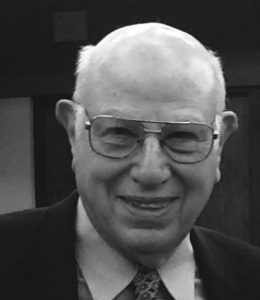 Herbert Rothschild was born and raised in New Orleans. After undergraduate work at Yale and graduate work at Harvard, he returned to Louisiana and taught in the English Department and the Honors Program at LSU from 1965 through 1987. From 1990 through 2003 he worked for the University of Houston, first in Public Affairs and later in the Honors College.
Herbert Rothschild was born and raised in New Orleans. After undergraduate work at Yale and graduate work at Harvard, he returned to Louisiana and taught in the English Department and the Honors Program at LSU from 1965 through 1987. From 1990 through 2003 he worked for the University of Houston, first in Public Affairs and later in the Honors College.
Rothschild began working for civil rights by founding a chapter of the ACLU in Baton Rouge in 1966. He served as state president from 1970-1972 and state legislative director from 1973-1977. In his role there, he was engaged in the protection of free speech and assembly, and reform of criminal procedure, as well as the rights of the mentally ill, students and women: all in the name of justice.
Herb has a great passion for educating about nuclear disarmament. Increasingly concerned about the U.S.-U.S.S.R. arms race, he started the nuclear disarmament movement in Louisiana in 1978, founding the Center for Disarmament Education, which continues today as Bienville House for Peace and Justice.
After retiring from LSU, he served as executive director of New Jersey SANE/Freeze (now Peace Action) from 1987 to 1990 and continued his peace work in Houston, founding the Houston Peace and Justice Center, which continues.
Herb and his wife, Deborah, moved to the Rogue Valley in 2009. He chaired the board of Peace House from 2011-2015, serving as de facto executive director the last four years. Since then, he has continued to work with its Prevent/End War program, with a renewed focus on nuclear disarmament.
In 2012, he helped start the Rogue Valley New Day Network, which brings the activist community together at monthly breakfasts and was instrumental in the formation of the Ashland Citizens Peace Commission in its early days. He is the clerk for the Peace & Social Concerns Committee at the South Mountain Friends Meeting (Quakers), and is active with the Interfaith Social Justice Coalition. For more than two years he wrote a weekly column for the Ashland Daily Tidings.
Herb has been a force behind the youngest roots of several different nonprofits in the Rogue Valley, helping to arrange for Peace House to sponsor Southern Oregon Pride, Move to Amend, Southern Oregon Climate Action Network, and Vision Quilt, as well as the initiative for the Ashland Citizens’ Peace Commission.
He has been equally at home and flexible in doing the work of office management, taking to advertisers and donors, organizing a bulk mailing or assuming the role of a meeting facilitator or secretary. He provides sound advice or a willing hand with grace, according to what is called for. While known for his strong opinions, Herb is also willing to be an active listener.
He continues to work for education on nuclear disarmament and to hope for a non-nuclear world.
Between them, Deborah and Herb have six children, 11 grandchildren, and one great grandchild. When not engaged in social change work or shopping for birthday presents, Herb enjoys teaching literature and taking courses in SOU’s Lifelong Learning Program (OLLI), and gardening.
~~~~~~~~~~~~~~~~~~~~~~~~~~~
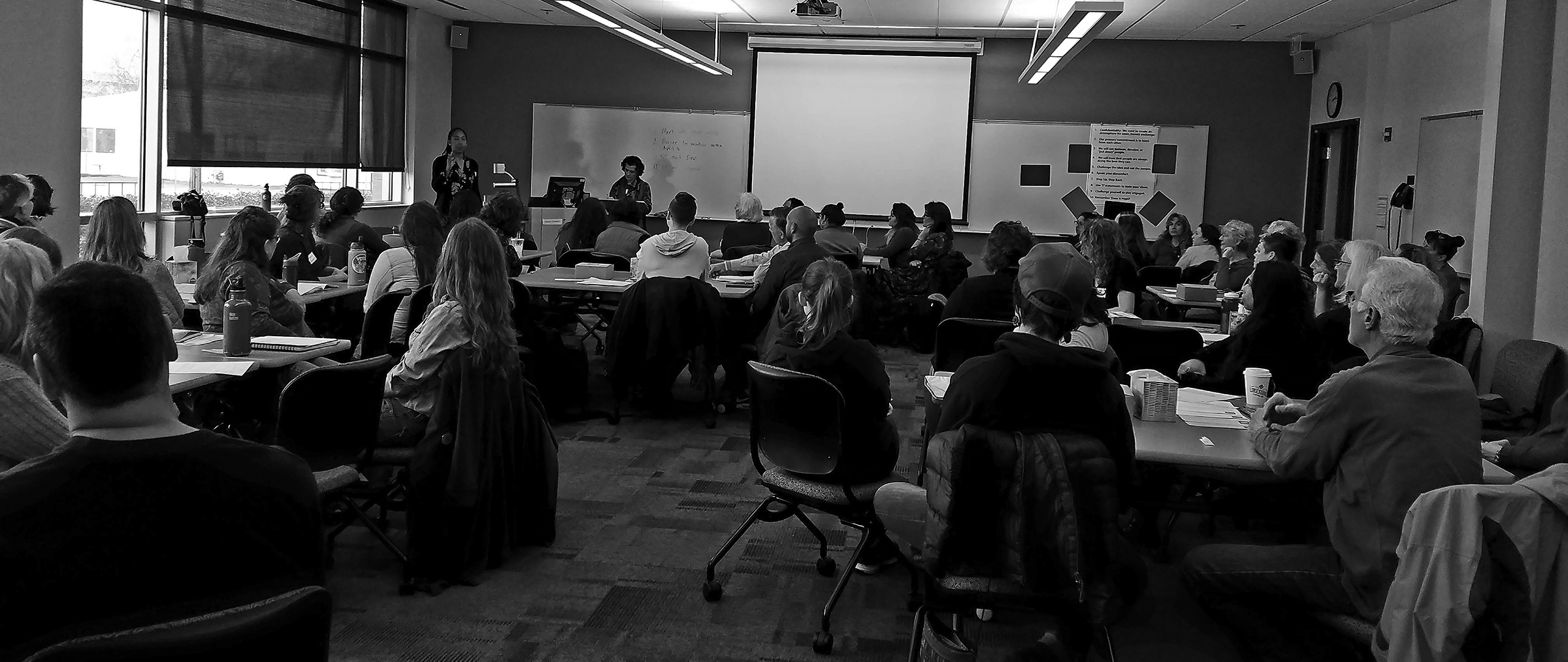 The Racial Equity Center (REC) was founded in 2014 by a few people of color seeking a safe space to process the killings of African American men, especially Michael Brown in Ferguson, MO, and Eric Garner in NY. From that first meeting, the group recognized racial inequities within the Rogue Valley and began exploring ways to foster a more inclusive Rogue Valley for people of all races and their intersections with sexual orientation, gender, ableism, class, and overall diversity rather than discrimination.
The Racial Equity Center (REC) was founded in 2014 by a few people of color seeking a safe space to process the killings of African American men, especially Michael Brown in Ferguson, MO, and Eric Garner in NY. From that first meeting, the group recognized racial inequities within the Rogue Valley and began exploring ways to foster a more inclusive Rogue Valley for people of all races and their intersections with sexual orientation, gender, ableism, class, and overall diversity rather than discrimination.
The REC is a grassroots, volunteer organization, acting as a mobilizing unit for community support and advocacy, and fostering partnerships with other community organizations.
Events and projects have included:
- Facilitating diversity trainings and serving as consultants for local organizations on diversity issues.
- Working with local law enforcement to hold police accountable for their practices; participating in forums between law enforcement and the Latino community.
- Working on and participating in community anti-hate rallies and canvassing.
- Continuing advocacy for DACA students.
- Making “You Have Options Program” accessible to Spanish-speaking community.
- The Race Tool Kit Project—creating an accessible entry point into race conversations: currently training 40 people as facilitators for small-group conversations, the REC has already held 50 such conversations in the Rogue Valley.
Hats off to Dr. Alma Rosa Alvarez, Marjorie Trueblood-Gamble, Toni Lovaglia and their team for the innovative and significant model they are creating. It could have far-reaching application across the country! For more information about REC, visit www.racialequityso.org or write recsoregon@gmail.com.


